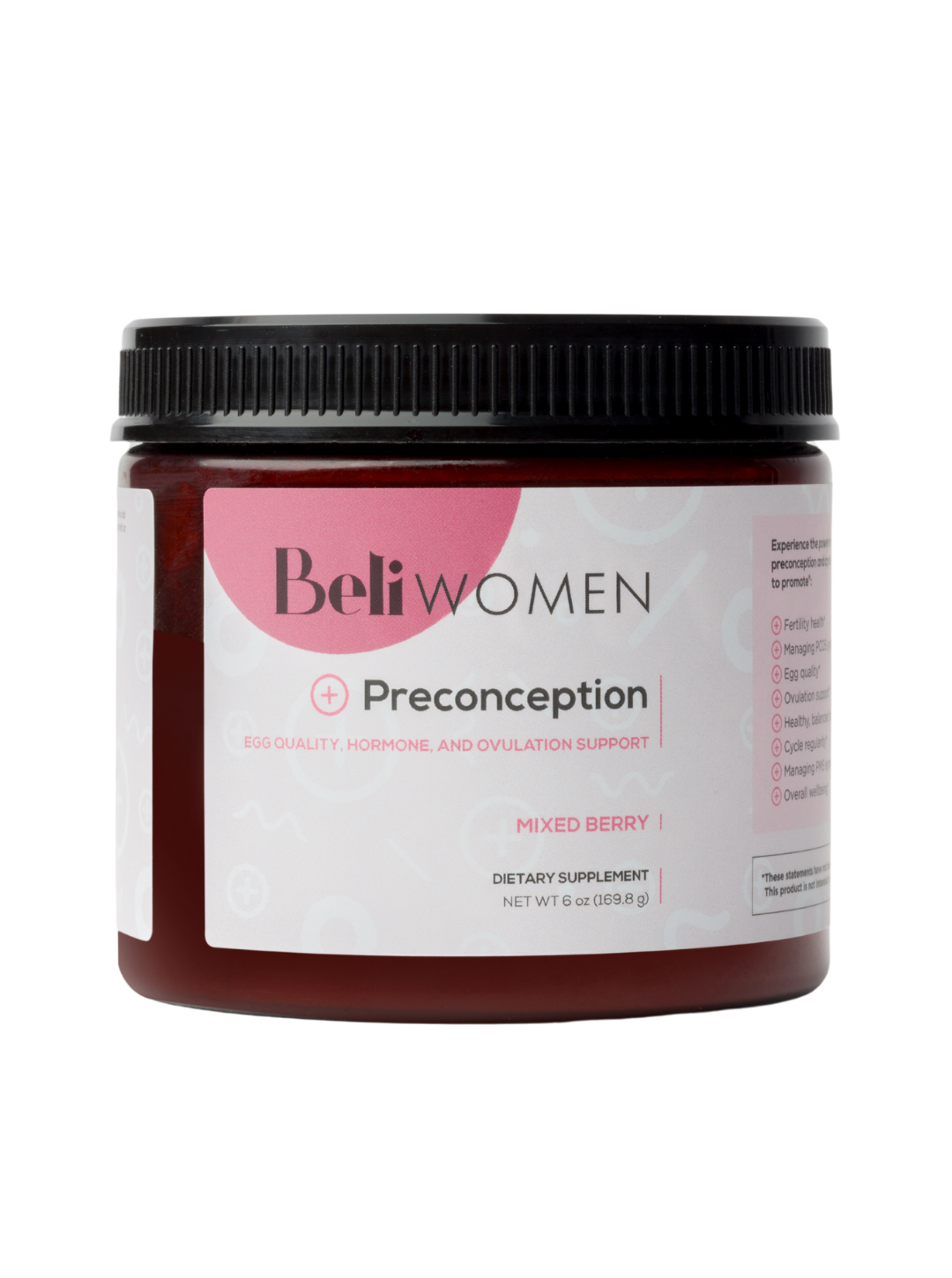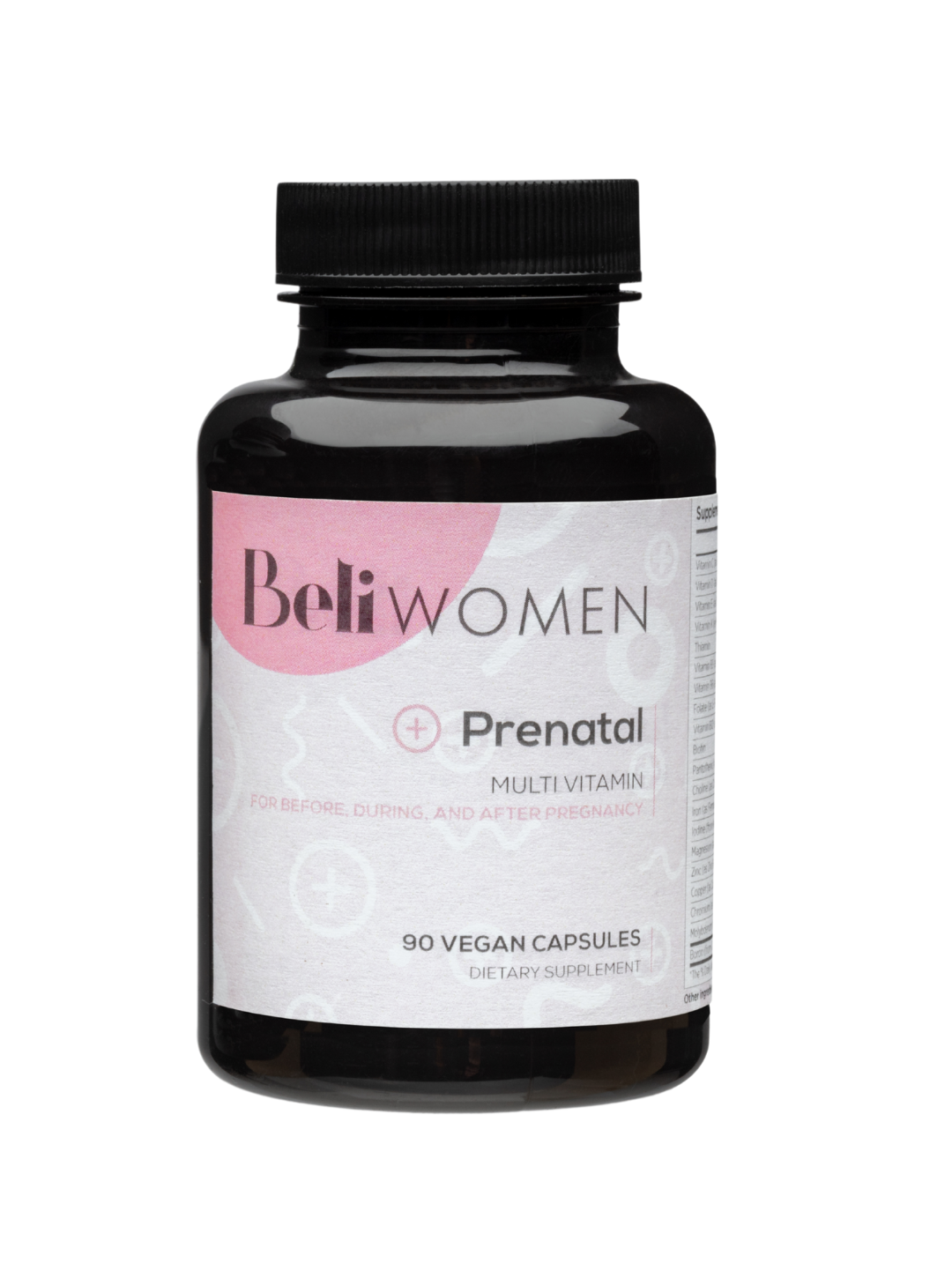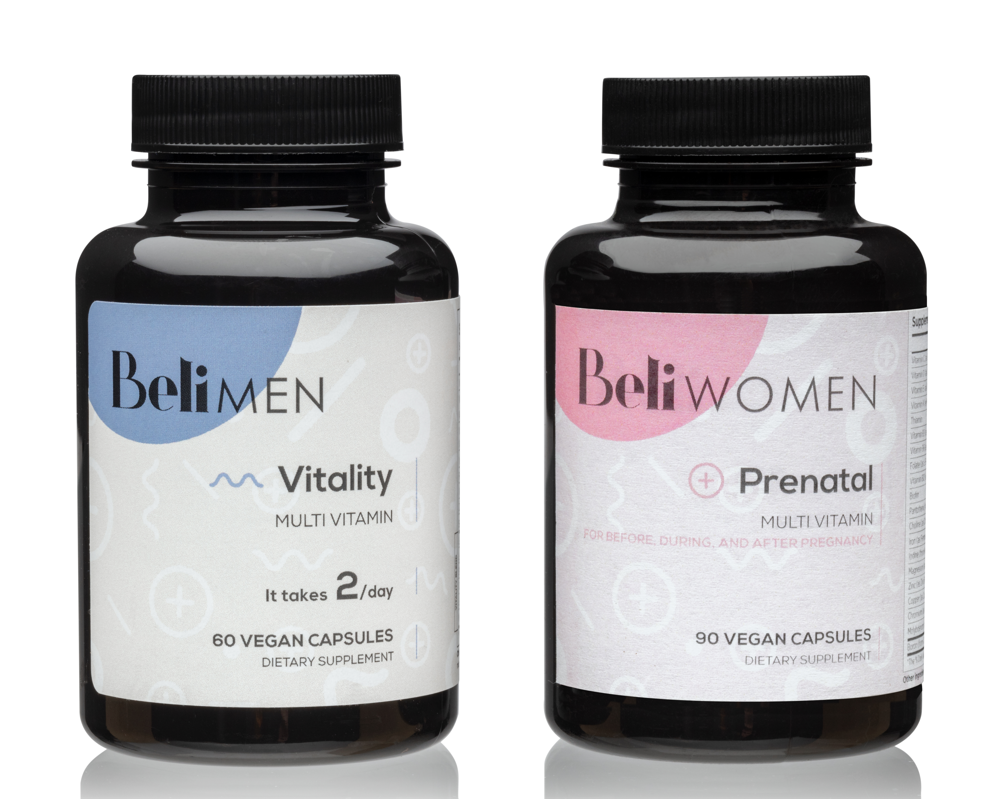Surprise! Egg quality can be influenced—for better and for worse—by specific external factors, and there are some signs that could indicate your egg quality isn’t as fantastic as it could be. For couples hoping to become pregnant, high-quality eggs are always the goal because they’re the ones with the best chance of developing into an embryo, successfully implanting in the uterus, and developing into a viable pregnancy. So, what should you look for and what can be done to support egg quality? To begin, let’s review the symptoms and causes of poor egg quality.
Key Takeaways
- Egg quality refers to normal or abnormal chromosomes, and some indications can suggest a potential issue.
- Trouble conceiving, irregular menstrual cycles, and recurrent miscarriage can all be related to poor egg quality, but they aren’t definitive.
- Poor egg quality can be related to age and genetic factors, but modifiable lifestyle habits can also have an influence.
- Addressing lifestyle factors such as smoking, diet, stress, and exercise can significantly impact egg quality.
- Specialized supplements, like Beli’s Preconception Boost+ Beli for Women Prenatal, can provide targeted nutritional support for egg quality.
How Is Poor Egg Quality Defined?
When a woman’s eggs are described as poor quality, it largely refers to whether they’re euploid (chromosomally normal) or aneuploid (chromosomally abnormal). This distinction affects an egg’s ability to be fertilized and properly develop into an embryo. The standard recommendation for assessing egg quality is by measuring ovarian reserve, but that simply tells you how many eggs you have. There’s no true egg quality test—the only way to know if an egg is chromosomally normal is to try to fertilize it and then perform genetic testing if the fertilization attempt is successful. Still, there are indicators that can suggest potential issues with egg quality, which is a much more manageable place to begin. These include:
- Difficulty Conceiving: If you’ve been trying to conceive longer than a year (or six months if you're over age 35), it’s worth speaking to a fertility expert to identify potential issues.
- Irregular Cycles: Irregular cycles can indicate hormonal imbalances or conditions like PCOS, which could affect egg quality.
- Recurrent Miscarriage: Multiple miscarriages, especially during the earlier stages of pregnancy, can be related to egg quality.
An important caveat here is that all of these issues can be the result of something else entirely, and not at all related to egg quality. In many instances of recurrent miscarriage, for example, the problem is with damaged sperm, not the egg. That’s why the best approach isn’t searching for signs that your eggs are no good—it’s to understand the modifiable lifestyle factors that support egg quality and do your darndest to embrace them.
Egg Quality vs. Egg Quantity
There’s some confusion about egg quantity—the number of eggs a woman has—and egg quality—the health and condition of those eggs. While the former is largely determined by age, genetics, medical conditions, and hormonal factors, the latter is influenced by things like oxidative stress, lifestyle, nutrition, and environment. Both egg quantity and egg quality decline with age. Here’s the biggest difference: While you can’t do anything to increase your egg count, you can take steps to support egg quality with key lifestyle changes. It’s an empowering thing to understand. So much of the fertility journey is out of our hands, but doing everything in your power to lead a healthy lifestyle can really make an enormous difference.

What Causes Poor Egg Quality?
There can be a number of reasons for chromosomal abnormalities, or poor egg quality, and the biggest is, of course, age. You’re likely very familiar with the idea of the biological clock (ahem, which affects men as well). While women begin life with millions of eggs, thousands and thousands are lost before the onset of puberty. Then, a woman’s body releases an egg every month, shedding another thousand or so with every cycle. The older a woman becomes, the greater the likelihood that errors happen during the cell division stage of the egg maturation process. That can lead to abnormalities that pose all sorts of issues, from problems implanting to triggering miscarriage to chromosomal disorders. By the time a woman is 35, only about half of her remaining eggs are chromosomally normal.
While no one has yet figured out how to slow down aging in any meaningful way, there are other factors that could also be affecting egg quality. And happily, these are things that are well within your control:
- Smoking: The chemicals in cigarettes mutate DNA in egg cells, which makes them entirely unsuitable for conception and increases the likelihood of birth defects. Consider this your sign—it’s well past time to quit.
- Stress: When you’re stressed, your body is flooded with cortisol and prolactin, hormones that impair egg production by interfering with ovulation. Mitigate stress in your life with breathwork, meditation, yoga, massage therapy, or regular therapy if you need to work through deep-seated issues. Stress has a huge impact on your mental and physical health, and you aren’t doing yourself any favors by letting it simmer and build—especially if you’re trying to have a baby.
- Diet: A diet that lacks nutrients and overloads on trans fats and simple sugars contributes to systemic inflammation. That’s a problem for various aspects of your health, including reproductive. Specifically, inflammation exposes eggs to oxidative stress.
- Exercise: Lack of consistent movement can be a major contributor to excess weight, especially when paired with a poor diet. But abnormal hormonal and metabolic factors in overweight and obese women negatively affect reproductive processes, which is why many doctors advise those hoping to conceive to achieve a healthy weight.
What Can Be Done to Improve Egg Quality?
Addressing these habits can have a profound effect on egg quality—and it can happen faster than you might think. The maturation process from immature egg, or oocyte, to an egg that’s ready for ovulation is about three months. During this time, oocytes remain dormant in the ovaries. During each cycle, a few will begin developing in a follicle, which are found in the outer layer of the ovaries. Usually, only one egg will fully mature and is released from its follicle during ovulation (unless there are two, which is how you get fraternal twins). This timeline means you have a 90-day window that serves as the perfect opportunity to improve your lifestyle in the interest of healthier eggs. In addition to nixing bad habits like smoking and alcohol consumption, managing stress and getting regular exercise, complement a balanced diet with a specialized supplement tailored to enhance fertility.
Nourishing egg quality is a key benefit of Beli’s new Preconception Boost, a complementary supplement specifically formulated to support women’s reproductive health and fertility. A focused blend of nutrients and antioxidants help shield eggs from oxidative stress to help ensure optimal maturation and viability, while also supporting balanced hormones. That’s a key consideration for fertility. It’s not just about the right ratio of hormones—the timing of their release needs to be exact. In fact, hormonal imbalances are the leading cause of infertility in women. We formulated Beli Preconception with therapeutic doses of science-backed nutrients to balance the body and support optimal preconception health, from egg quality to ovulation to balanced hormones, because there are many factors in play when it comes to healthy fertility!
Plus, it’s designed to work with our high-quality prenatal vitamin, like Beli For Women, which is formulated with nutrients that have been identified for their role in supporting egg quality, including:
- Vitamins B6 and B12: Help promote normal ovulation.
- Folate: Protects against chromosomal abnormalities.
- Vitamin E: An antioxidant that helps protect maturing eggs from oxidative damage.
- Vitamin K2: Aids in metabolizing estrogen and progesterone.
Starting prenatal vitamins the moment you decide you’re going to try for a baby doesn’t just ensure access to key nutrients like folate and choline in the event you become pregnant quickly (a key consideration for minimizing risks of birth defects). Studies have linked key micronutrients to the processes that drive conception in both women and men, and since the average American diet is, shall we say, lacking, a high-quality prenatal vitamin goes a long way to fill those gaps.
Unique Insights: What Many People Don’t Know
- Mitochondrial Health: The health of mitochondria in your eggs plays a crucial role in their quality. Mitochondria are the powerhouses of the cell, and their function declines with age, affecting egg quality. Supplements like CoQ10 can support mitochondrial function and improve egg quality.
- Environmental Toxins: Exposure to environmental toxins, such as pesticides and heavy metals, can negatively impact egg quality. Eating organic foods and using non-toxic household products can reduce exposure to these harmful substances.
- Melatonin: Known for regulating sleep, melatonin also acts as a powerful antioxidant in the ovaries, protecting eggs from oxidative damage. Some studies suggest that melatonin supplements may improve egg quality, especially in women undergoing IVF.
- Sleep Quality: Poor sleep can disrupt hormonal balance and negatively impact egg quality. Prioritizing good sleep hygiene and addressing sleep disorders can support reproductive health.
- Acupuncture: Traditional Chinese medicine, particularly acupuncture, has been shown to improve blood flow to the ovaries and enhance egg quality. Incorporating acupuncture into your fertility routine may offer additional benefits.
The Bottom Line
It’s really difficult to overstate the importance that egg quality plays in a healthy conception and pregnancy. While age can be an unavoidable factor, there are modifiable lifestyle factors that can have a positive influence on egg quality. In addition to leading a healthy lifestyle, supplement with a prenatal vitamin to ensure you’re getting adequate amounts of nutrients shown to support egg quality. It’s also helpful to speak with your doctor if you’ve noticed signs of poor egg quality. The more you know, the better positioned you are to make educated decisions.
What You Should Know
Understanding and improving egg quality is crucial for anyone hoping to conceive. While age and genetics play a significant role, many lifestyle factors can be controlled to enhance egg quality. From quitting smoking to managing stress, eating a balanced diet, and incorporating specialized supplements, there are numerous steps you can take to support your reproductive health. Staying informed and proactive in your fertility journey can make all the difference in achieving a healthy pregnancy.





